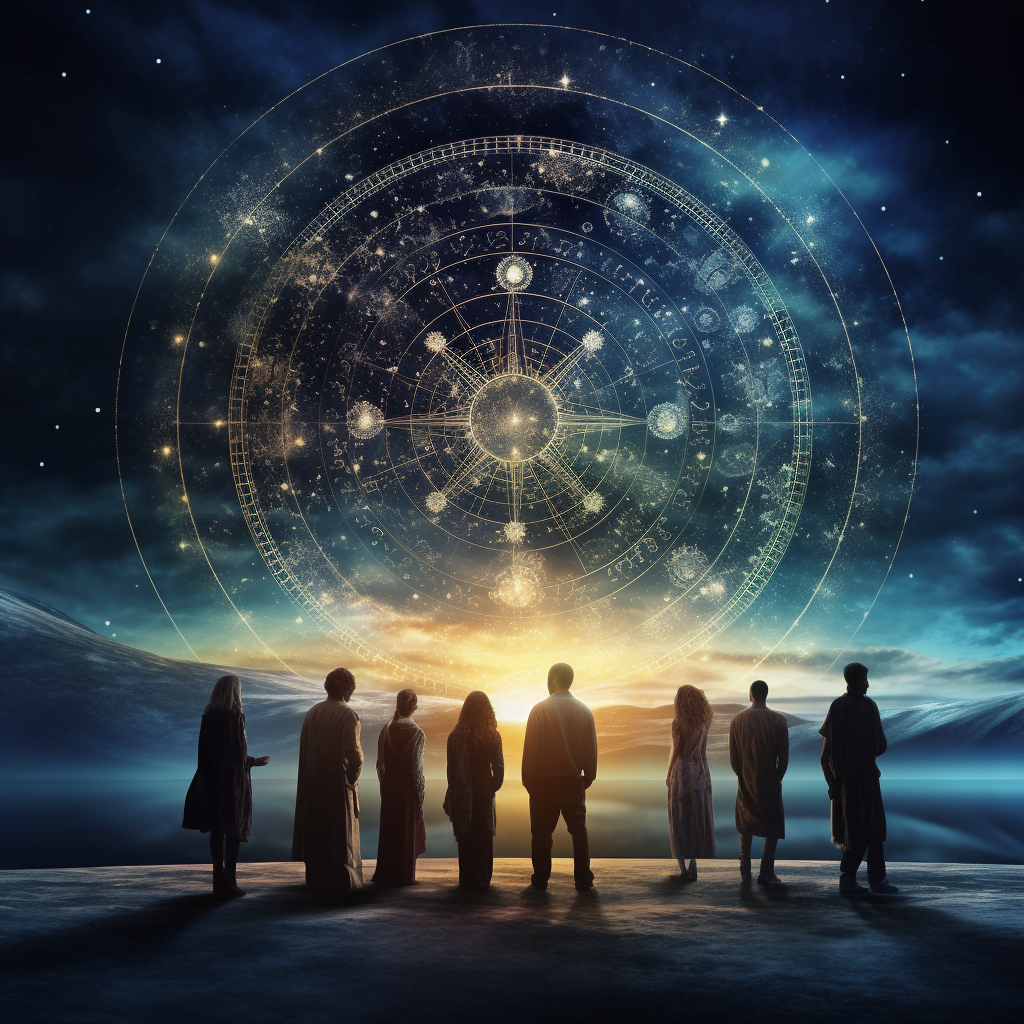I embarked on a scholarly journey to uncover the intriguing origins of astrology within the realm of Greek mythology. Delving into the rich narratives of the ancient Greeks, I explored the intricate connections between astrology and the revered gods and goddesses. Through this investigation, I aimed to shed light on the question that has lingered in the minds of many: Is astrology truly rooted in Greek mythology? Join me as we embark on a fascinating exploration of the celestial connections between the gods and the stars.
The Origins of Astrology in Greek Mythology
Introduction to Greek Mythology
Greek mythology is a body of stories and legends that originated in ancient Greece and played a significant role in the lives of the ancient Greeks. These myths, which were passed down orally from generation to generation, were an integral part of their religion, culture, and understanding of the world. Greek mythology featured a rich collection of gods, goddesses, heroes, and creatures, each with their own unique qualities and roles. These myths explored the origin of the universe, the nature of humanity, and the relationship between mortals and deities.
The Birth of Astrology
Astrology, as a practice, seeks to understand and interpret the influence of celestial bodies on human life and behavior. Its roots can be traced back to ancient civilizations, including Mesopotamia, Egypt, and India. However, it was in ancient Greece that astrology began to develop into a more comprehensive system. Greek astrology emerged around the 5th century BCE, influenced by Egyptian and Babylonian astrology, as well as ideas from Greek philosophy.
The Influence of the Zodiac
The zodiac is a key component of astrology, representing a circle of twelve equal divisions, or signs, each associated with a different time period and set of traits. This system has its origins in ancient Babylon, but it was the Greeks who gave it the name “zodiac” and incorporated it into their own astrology. In Greek astrology, the zodiac was seen as a celestial belt through which the sun, moon, and planets moved.
The Role of the Planets
In Greek mythology, the gods played a crucial role in the everyday lives of mortals, influencing various aspects like love, war, and fortune. The planets, which were believed to be manifestations of the gods, held a significant place in Greek astrology. Each planet was associated with a particular Greek god, reflecting their respective domains and characteristics. For example, Venus was linked to the goddess Aphrodite, representing beauty and love, while Mars was connected to Ares, the god of war.
The Twelve Olympian Gods and Astrology
The Twelve Olympian Gods were the most significant deities in Greek mythology, residing on Mount Olympus, the highest peak in Greece. They were believed to possess great powers and dominion over various aspects of the mortal world. In Greek astrology, each of the Twelve Olympian Gods was associated with a specific zodiac sign, linking the traits and qualities of the god to those born under that sign. For example, Zeus, the king of the gods, was associated with the sign of Leo, representing leadership and authority.
The Greek Mythology Connection to Zodiac Signs
Each zodiac sign is associated with unique symbols, personalities, and traits. The connection between Greek mythology and the zodiac signs can be seen through the stories and characters that represent each sign. For instance, Aries, the first sign of the zodiac, is associated with the story of the Golden Fleece and the heroic figure of Jason, who embarked on a daring quest. This connection reflects the adventurous and pioneering spirit of individuals born under the sign of Aries.
The Twelve Labours of Hercules and Astrology
The Twelve Labours of Hercules, one of the most famous mythological stories in Greek mythology, can also be linked to astrology. As part of his penance, Hercules was tasked with completing twelve challenging and dangerous labours. Each of these labours can be associated with a specific zodiac sign, highlighting the astrological significance of these tales. For example, the labour of capturing the Nemean Lion corresponds to the sign of Leo, symbolizing strength and courage.
The Odyssey and Astrology
The Odyssey, an epic poem attributed to the ancient Greek poet Homer, follows the adventures of Odysseus as he attempts to return home after the Trojan War. Throughout his journey, he encounters various mythological creatures and faces numerous challenges. Astrology plays a role in The Odyssey, with the celestial bodies acting as guides and indicators of the gods’ influence on Odysseus’ fate. The journey of Odysseus can be seen as a metaphorical representation of the astrological journey and the challenges faced by individuals in their own lives.
The Iliad and Astrology
Similar to The Odyssey, The Iliad, also attributed to Homer, explores the Trojans’ and Greeks’ struggle in the Trojan War. While astrology is not as prominently featured in The Iliad as it is in The Odyssey, the gods and their influence on mortal affairs are central to the narrative. The notion of divine intervention and the impact of the gods’ favor or disfavor can be seen as elements that align with the principles of astrology.
The Influence of Greek Philosophy on Astrology
Greek philosophy played a significant role in shaping many aspects of ancient Greek culture, including astrology. Greek philosophers such as Plato and Aristotle questioned the nature of the universe, the existence of the gods, and the role of human beings within the cosmic order. Their philosophical ideas influenced the interpretation and development of astrology, as they sought to understand the relationship between the celestial bodies and human existence. The teachings of these philosophers infused intellectual rigor and critical thinking into astrology, elevating its status as a field of study.
In conclusion, the origins of astrology can be traced back to ancient Greece, where it was deeply intertwined with Greek mythology. The celestial bodies, zodiac signs, and mythological characters played a significant role in shaping the understanding and interpretation of astrological concepts. Greek mythology provided a rich tapestry of stories and symbols that continue to influence astrology to this day. Furthermore, the philosophical ideas of ancient Greek thinkers further enriched and expanded the field of astrology, elevating it to a complex and comprehensive system of understanding the cosmos and human existence.


